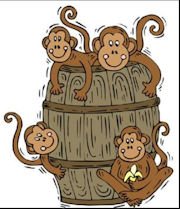I record every expense every day too but for me it's not much discipline. It's what I do right after taking my shoes off, changing to more comfie clothes, and settling into my recliner with my laptop, once I return home. All part of the same routine. (Then if I order something from Amazon later that night, I record it when I order it.) They say that it takes 21 days to form a habit and once this becomes a habit then it is pretty much automatic.
As Dtail pointed out, it doesn't actually take much time and my guess would be more like 30 seconds than five minutes. For example today under Restaurants "$8.00 soup". There. That didn't take long to type.

I haven't spent anything else today so far.
Then every few days I "balance my wallet", taking the previous amount that was in it and subtracting what I bought in cash since that time, and checking to see if the result balances with what is presently in my wallet (to make sure I didn't forget to enter anything). That can be a little more challenging but I love doing it, especially the victorious feeling when it balances. At the same time I check my credit card purchases on their website, and my bank accounts, to make sure anything paid from there was entered in my spreadsheet too. Again, quick and easy and only every few days.
I didn't keep track of my spending to the penny each day when I was working, but back in 2011 F told me about how he does this and I was SO impressed and instantly a convert! What a great idea. Anyone who loves numbers should try it because honestly it is so much fun. Or it is for some of us, anyway. More fun than a barrel of monkeys.


